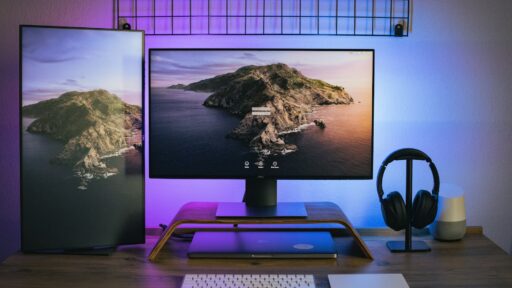Workplace air quality has a direct impact on employee health, comfort, and productivity. While HVAC systems and ventilation often get the most attention, carpets are a less obvious but equally important factor. They act as both a filter and a reservoir for airborne particles, meaning that their cleanliness directly influences the air people breathe every day.
How Carpets Affect Indoor Air
Carpet fibres naturally trap dust, pollen, skin cells, and other small particles. This can be beneficial, as it prevents these particles from circulating freely in the air. However, over time, these trapped contaminants accumulate and can be released back into the environment through foot traffic, vacuuming with poor filtration, or even air movement from fans and air conditioning.
If left unchecked, carpets can become a source of indoor air pollution rather than a filter for it. This is particularly concerning in offices where people spend many hours each day in a relatively closed environment.
Common Contaminants Found in Office Carpets
A workplace carpet can hold far more than just dust. Common pollutants include:
- Allergens such as dust mites and pet dander (especially in pet-friendly offices)
- Mould spores in areas with high humidity or previous water damage
- Bacteria and viruses brought in on shoes or dropped items
- Chemical residues from cleaning products, spills, or nearby industrial activity
When disturbed, these particles can trigger allergies, respiratory discomfort, and other health concerns.
The Impact on Employee Wellbeing
Poor indoor air quality is linked to a range of issues that affect employee wellbeing and performance, including headaches, fatigue, dry throat, and worsening of asthma or allergies. Over time, exposure to contaminated air can lead to more frequent sick days and reduced productivity.
Conversely, cleaner carpets contribute to cleaner air, reducing the likelihood of respiratory irritations and creating a more comfortable working environment. This supports not only employee health but also morale—people are more engaged in a workplace that feels fresh and well-maintained.
Why Routine Maintenance Isn’t Always Enough
Vacuuming alone, even daily, won’t fully remove embedded contaminants. Standard vacuums often lack the filtration power to capture microscopic particles, meaning some pollutants are simply redistributed into the air.
Periodic deep cleaning, especially using hot water extraction or other professional methods, ensures that particles lodged deep in the carpet pile are effectively removed. This is particularly important in high-traffic zones like reception areas, meeting rooms, and open-plan offices.
The Role of Professional Services
Specialist cleaning teams use equipment designed to reach deep into carpet fibres and remove both visible dirt and hidden pollutants. For businesses seeking to improve air quality, partnering with an experienced provider for Carpet Cleaning in Newcastle can make a measurable difference. Professional services don’t just improve the appearance of the carpet—they help maintain a healthier indoor environment by targeting the contaminants that impact air quality.
Setting a Cleaning Schedule for Air Quality Benefits
While every workplace is different, a general guideline is to schedule professional carpet cleaning every 6–12 months. Offices with higher foot traffic or greater exposure to outdoor dust may benefit from quarterly treatments. Pairing these cleans with regular vacuuming using a HEPA-filtered machine will maximise the air quality benefits.
It’s also important to address spills, leaks, or signs of dampness promptly, as moisture can quickly lead to mould growth within carpets—significantly reducing air quality and increasing health risks.
Additional Steps to Support Cleaner Air
Carpet hygiene is only one part of a broader strategy for healthier workplace air. Consider:
- Installing air purifiers with HEPA filters in high-use areas
- Maintaining HVAC systems with regular filter changes
- Encouraging a no-shoes policy in certain areas to reduce dirt transfer
- Using low-VOC cleaning products to limit chemical exposure
These measures work best in combination, ensuring pollutants are both removed from surfaces and prevented from entering the air in the first place.
A Workplace Investment That Pays Off
Clean carpets don’t just look good—they quietly contribute to better health, productivity, and employee satisfaction. By recognising the role carpets play in indoor air quality, employers can take proactive steps that benefit everyone in the workplace.
With the support of professional services such as Carpet Cleaning in Newcastle, maintaining carpet hygiene becomes a straightforward way to improve both the environment and the wellbeing of the people who work in it.








